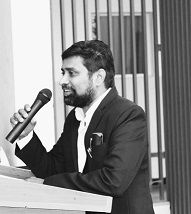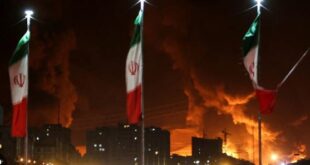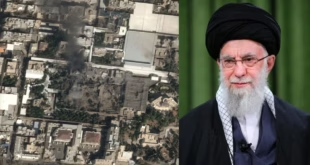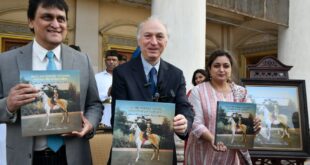By: Riaz F Shaikh
Who is a Muslim?
A person who follows Islam. What is Islam? A religion in which you submit to the will of Allah (glory be to him), and follow the teachings of his last prophet Muhammad (peace be upon him). These seem to be simple questions with fairly standard answers. When you ask, “how do you measure the Muslim-ness of an individual or Islam-icity of a nation?” it gets a little more complicated. Is a person ‘more Muslim’ if he claims a stronger belief in the tenets of Islam, if he practises the rituals of Islam regularly and strictly, if he has more knowledge of Islam, or if others see him as more Muslim? Similarly, is a country ‘more Islamic’ if it consists of more Muslims (in total population or by percentage population), if it enacts the Shariah law, has more knowledgeable Islamic scholars, or if it has more, larger, or more munificent mosques?
 At least one organisation says, “None of the above!”
At least one organisation says, “None of the above!”
The Islamicity Foundation, a US-based non-profit set up by a group of Muslims, makes a clear distinction between the nominal, ritual, cultural practices of Muslims and the spirit of Islam. It has created an Islamicity Index to assess the performance of Muslims, their communities, their rulers, and their governments, on the basis of adherence to Quranic teachings and the Prophet’s practices. According to their 2019 rankings, the most Islamic country in the world is New Zealand, and the least Islamic is Syria (#151)! Israel is at #39 while India is at #88. The most Islamic of the ‘Muslim countries’ is United Arab Emirates at #44. Indonesia is #61, Saudi Arabia #77, India #88, Turkey #96, Bangladesh #124, Iran #132, and Pakistan #135.
A composite score for all ‘Muslim’ countries puts them at #109.
How accurate are these rankings?
They largely agree with other standard indices of development like the Human Development Index (which is one of the components of the Islamicity index), but the bigger question is whether Islamicity can be equated with development. Islam is a more comprehensive concept, being a complete ‘way of life’, but it is certainly consistent with human rights and development. The Islamicity rankings of countries take into account their economy, legal and governance, human and political rights, and international relations. In addition to compliance with Islam’s core beliefs, the Islamicity index incorporates: equitable distribution of income and wealth, safety and security, socio-economic justice, social capital, environmental sustainability, healthcare, education, institutional quality, economic development, financial development, and business environment. Are these universal indicators of development and well-being, or are they religion-dependent? Would a Muslim not prefer to practise his Islam in an environment that ranks high on these criteria? The mass influx of immigrants from Muslim countries into the developed Western countries gives a clear answer.
Of course, the Islamicity Index is not without its fair share of controversy or criticism. There are those who argue that calling developed Western countries ‘Islamic’ just because of their economic and social success legitimises Western hegemony and the Islamophobia there. And that the index does not attempt to assess living an Islamic life, although it is the definition of Islamic itself which is the bone of contention between the authors of the Islamicity index and its critics. Others criticise the index for not conforming to the goals of Shariah (the Islamic law) and following the rituals of worship. However, the authors respond that they are not as concerned with the personal religious practices of Muslims but are focusing on measuring the extent to which Muslim societies have adopted the philosophy and rules of Islam that affect society. Islam, like any religion, will be judged, not by its teachings, but by the actions of its followers.
They argue that in a rule-abiding Muslim community there must be political and individual freedom, an equitable distribution of wealth, accountability of rulers and governments, and socio-economic justice. Though the criticism is not totally unfounded, it probably fails to see the irony of taking the rankings so seriously. The Islamicity index seems to be a tongue-in-cheek wake-up call to so-called Muslims and Muslim countries to walk the talk, in embracing the deeper principles of Islam that go beyond the rituals and provide a just, peaceful, and prosperous world, for everyone.
Disclaimer: The views expressed in this article may not necessarily be endorsed by the publication.
 Gawah (The Witness) – Hyderabad India Fearless By Birth, Pristine by Choice – First National Urdu Weekly From South India – Latest News, Breaking News, Special Stories, Interviews, Islamic, World, India, National News
Gawah (The Witness) – Hyderabad India Fearless By Birth, Pristine by Choice – First National Urdu Weekly From South India – Latest News, Breaking News, Special Stories, Interviews, Islamic, World, India, National News







